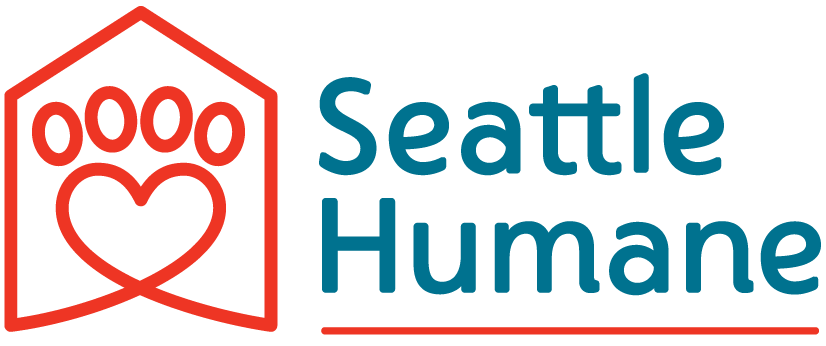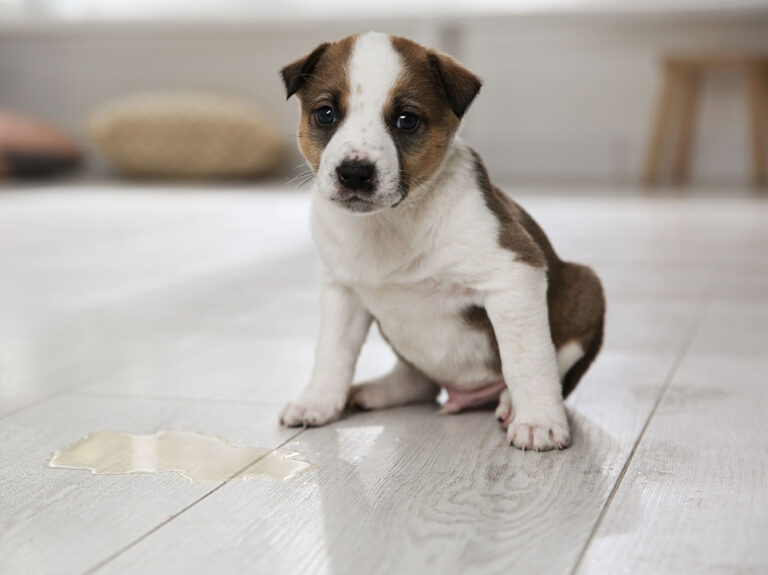House training is necessary whether you adopt a puppy or an adult dog. A puppy hasn’t been taught the essentials – and an adult dog may not have been trained or will need a refresher course with a new family, home and routine.
Establish a routine and stick to it (even on the weekends). If possible, it’s best to feed your dog on a schedule to help you anticipate when he needs to go “potty.” A trip outdoors or to their designated bathroom spot is needed first thing in the morning, before bed time and after every meal.
Depending on the age and size of your dog, they may need to go several times a day. A puppy will need to be let out every one to two hours for them to develop good bathroom habits.
Create a special indoor space just for your dog. Confinement is the best tool for house training (it also prevents the potential for destructive behavior). The use of a crate is recommended– especially for puppies – or you can section off a small space in your house by using a baby gate to close off the kitchen, laundry room or bathroom.
This designated space should be small, but large enough for them to stand up and turn around. The space should also have water, bedding and toys for your dog to be comfortable. Dogs naturally want to keep their living space clean and will usually opt to “hold it” rather than eliminate near their food or sleeping area. If you give them too much space, they’ll designate a spot to “live” and a spot to “potty.”
Your dog should be in a crate or confined to a space whenever they are unsupervised until you’re confident that they understand where to go.
Watch for the signs. Not every dog is going to point their nose at the door when they need to go out. Learn your dog’s signs – sniffing and circling are clues that your dog needs to get outside.
Praise is essential. This is the fun part! When your dog has used his bathroom place, praise him in a happy, sing-songy voice and give him a cherished treat. Be consistent and positive throughout this process. It may be helpful to put your dog on leash to help them focus and to also communicate why you’re outside – it’s not a time to explore and play!
Punishment can actually do more harm than good. If you don’t catch your dog in real-time during an accident, it’s too late. They won’t associate your scolding with their accident, which only creates confusion and fear. If you do catch them eliminating in the wrong place, get their attention and take them outside to the appropriate place. If they go potty, praise them – and be sure to thoroughly clean the spot of the accident so they aren’t encouraged to return to it.
The learning curve for each dog is different, but if you’re patient and consistent, you’ll be rewarded with a lifetime of companionship!

